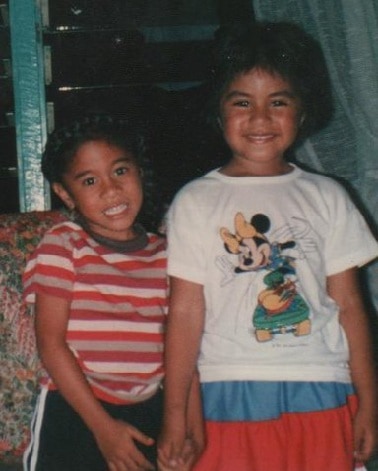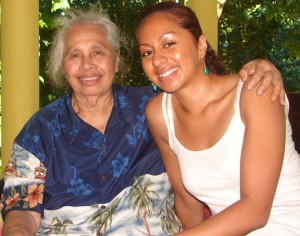 I have recently begun collecting stories of empathy experiences from around the world for a new book I am writing. Here is one of the latest, in which Antonina Elliott, a graphic designer who lives in New Zealand, describes a memory from a family visit to Samoa when she was five years old.
I have recently begun collecting stories of empathy experiences from around the world for a new book I am writing. Here is one of the latest, in which Antonina Elliott, a graphic designer who lives in New Zealand, describes a memory from a family visit to Samoa when she was five years old.
I have never truly stopped to consider the importance of empathy in my life until now. In recent events, my actions and words have hurt family and friends and left a trail of broken relationships in my wake, resulting in me seriously doubting whether I ever possessed any empathy at all.
Questions about my empathic capabilities have plagued my mind but a childhood memory of mine gives me hope.
When I was five years old, my mother and I travelled to Samoa to visit family in her village of Moata’a. Like many Pacific Island immigrants, my parents had left their island homelands with their families for New Zealand, lured to the land of milk and honey, which promised them an abundance of wealth, education and opportunities.
Samoa, the country of my birth, was a nation rich in family and culture but poor in material possessions. To my five-year-old eyes, everything seemed alien and unsettling. The task of meeting grandparents, extended family members and villagers was a daunting experience heightened by the myriad of pigs and chickens that darted frequently around our home.
However one night, my fear and discomfort faded away and was replaced by something else: empathy. It was the 1980s and TV sets were a rare sight in my village. It was an item of luxury my family enjoyed and which many others could ill afford. That my family owned one at all set us apart. We were not rich by any means, but along with our fale palagi, a European style house with walls, windows and rooms as opposed to traditional huts, we lived in relative comfort.
That evening, while watching TV alone in our living room, I turned around and saw that outside stood a line of village children, peering through the window slats, watching with me. I was immediately struck with guilt. I was in a house that had walls, light and a television while they stood outside in the dust. I felt rich and privileged in comparison to them and that made me feel uneasy. I felt a huge divide between us and I wanted to close it immediately. So I stood up and went to join them for the remainder of the night, watching my own TV through the windows of my own home.
 The memory of that event has never been significant in my life until now. While I have always thought of it as nothing more than a cute recollection, recent events in my life have driven me to unearth these empathic moments with desperation. It reassures me that if, as a five-year-old child, I could step into the perspective of others and act out in simple honesty and empathy, then the ability to do so again does exist.
The memory of that event has never been significant in my life until now. While I have always thought of it as nothing more than a cute recollection, recent events in my life have driven me to unearth these empathic moments with desperation. It reassures me that if, as a five-year-old child, I could step into the perspective of others and act out in simple honesty and empathy, then the ability to do so again does exist.
Empathy not only dissolved the discomfort I felt earlier on, it also erased my fear towards strangers in a strange land. Empathy allowed me to break down social, relational and emotional prejudices. It unified me with the village children – I felt a certain solidarity with them in their world rather than a visitor in it. Empathy allowed me to see and experience as they did and with being so young, it was free of being hijacked by my own ego.
In the context of my life today, preserving and nurturing empathy more consistently could have been instrumental in saving the relationships I once enjoyed with loved ones. While I have many regrets, I also remain optimistic that the nature of that five-year-old kid remains still and will resurface again in action and not just in memory.
I’m collecting empathy stories like Antonina’s for a forthcoming book on the global empathy revolution (a selection will also be featured on this blog). If you have a story from your own life of a memorable moment of empathy – or the lack of it – then I’d love to hear from you. Please send it to me in 750 words or less here.